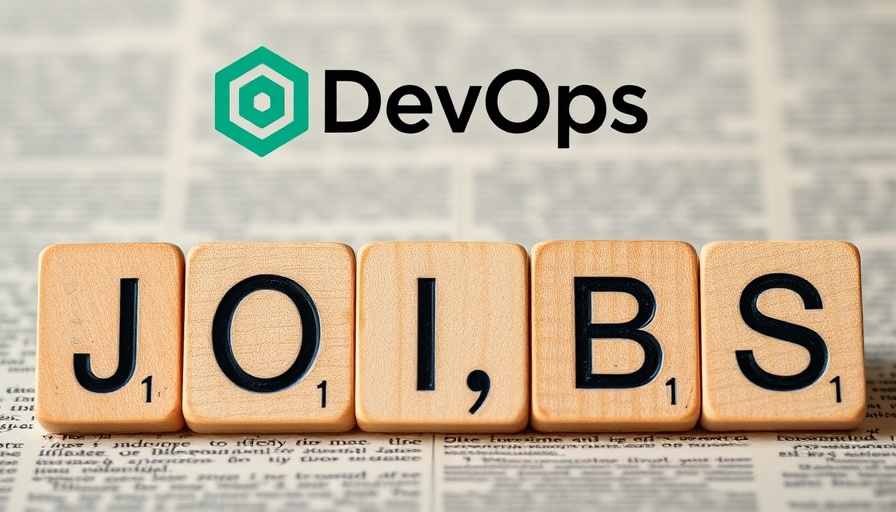
Unlocking Opportunities in the Fast-Paced World of DevOps
In today’s technology-driven landscape, the demand for skilled DevOps professionals is skyrocketing. As organizations increasingly adopt Agile methodologies, job opportunities in this field are not only growing in number but also evolving in scope. Here, we explore five standout job opportunities within DevOps, with a focus on the unique skills and experiences that can position candidates ahead of the curve.
The Importance of DevOps in Modern Enterprises
As more companies shift to a DevOps culture, understanding the role of collaboration in Agile frameworks is crucial. DevOps integrates development and operations teams, enabling faster deployment of software and applications, which ultimately leads to improved customer satisfaction. In industries ranging from finance to healthcare, organizations that embrace DevOps strategies report increased efficiency and faster time to market, showcasing a trend that not only benefits businesses but also cultivates a robust job market for tech professionals.
Top 5 Job Opportunities in DevOps
Here are five compelling job opportunities that reflect the current demand in the DevOps space:
- DevOps Engineer: The backbone of any DevOps strategy, DevOps engineers work at the intersection of development, production, and IT operations, ensuring quality and efficiency.
- Site Reliability Engineer (SRE): Focused on ensuring application performance and reliability, SRE roles often blend software engineering with IT operations, a crucial aspect for scalable systems.
- DevSecOps Specialist: As cybersecurity becomes a priority, companies seek professionals who can integrate security into CI/CD pipelines, highlighting the growing need for secure development practices.
- Release Manager: These professionals oversee the deployment process, ensuring that software releases are timely and coordinated across teams while managing risks.
- Cloud Engineer: As cloud computing becomes integral to DevOps, roles focusing on cloud infrastructure and management are increasingly in high demand.
The Unique Skills Required
To excel in these roles, candidates should look to develop a diverse skill set, spanning both technical and soft skills. Proficiency in cloud services, automation tools, and a deep understanding of Agile methodologies are critical. However, soft skills such as strong communication and collaboration abilities are equally important, as these positions often require cross-functioning with various teams.
The Future of DevOps: Trends to Watch
The landscape of DevOps is continuously evolving. Future trends lean towards increased automation and integration of AI in DevOps processes—an area where job candidates can differentiate themselves by harnessing new technologies effectively. The rise of DevSecOps illustrates the need for security-minded professionals who can foresee and mitigate risks in development processes. Staying informed about technological advancements will be essential for professionals looking to advance in their careers.
Getting Started in Your DevOps Career
For those interested in diving into the world of DevOps, pursuing certifications in Agile methodologies, cloud platforms, and security practices can provide a significant advantage. Additionally, hands-on experience through internships or personal projects can allow candidates to demonstrate their ability to apply theoretical knowledge in practical scenarios. Networking within relevant communities, seeking mentorship, and attending industry events can also open doors to job opportunities.
With the digital transformation reshaping industries and the escalating reliance on technology, the future for DevOps jobs looks bright. By understanding the market's needs and continuously updating skills, aspiring professionals can position themselves for success in this dynamic field.
 Add Row
Add Row  Add
Add 




Write A Comment